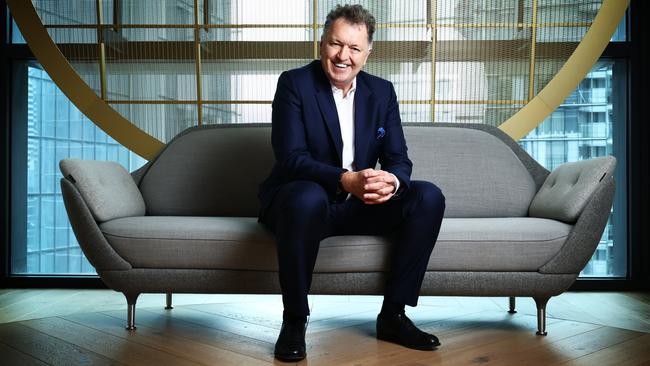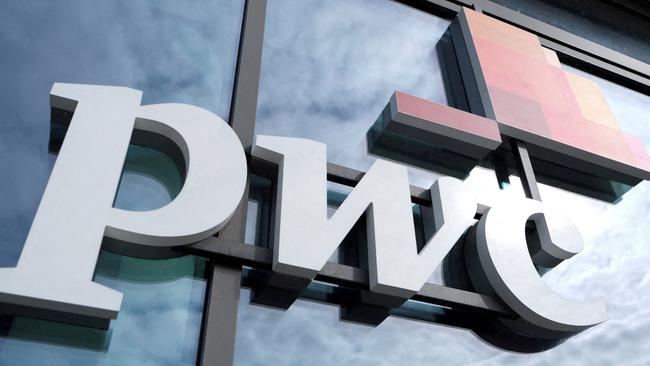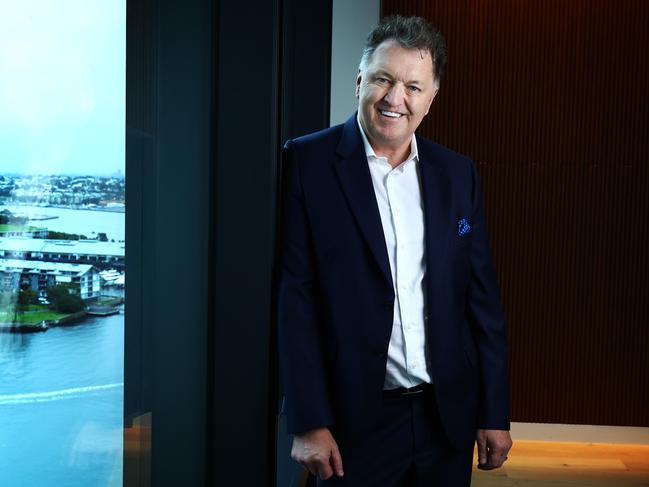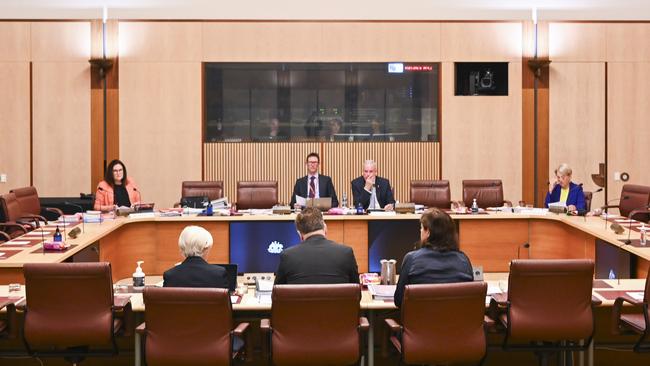PwC CEO Kevin Burrows says firm is totally different since tax scandal
The man parachuted in to clean up the PwC mess says the auditor has made big changes over two years, but more needs to be done on its rebuild.

PwC Australia is a “totally different firm” following a sweeping cultural, board and management rebuild and over the past two years, however chief executive Kevin Burrowes acknowledges full change will take more time in order to put the tax scandal behind the big four auditor.
Burrowes was speaking to The Australian some two years on from the appointment of a deep dive into what went wrong at the partnership that placed it in a very centre of an explosive national scandal and forced a crackdown in the way that Canberra’s public service dealt with consultants.
“We’re a totally different firm to when I started in the middle of 2023. I want to be very clear, we’re not at the finishing line. There is a huge amount still for us to do. We’re not declaring success or victory,” he said.
Burrowes said PwC can rebuild, and he believes it is a stronger, more transparent firm with more independent checks and balances. Despite the reputational hammering, it will emerge as a better business, he said.
“We want to be the pre-eminent firm in Australia.”

There’s still an ongoing police investigation into the former partners involved in the scandal that saw a former partner share with clients confidential plans to change tax laws and a later cover-up by former management. The scandal forced PwC to offload its once lucrative Canberra consulting business and cut hundreds of staff, and business dwindled.
Burrowes released the results of an independent review into progress on the firm’s ‘action plan’ launched on the back of a probe into culture and governance launched by former NBN chair and Telstra boss Ziggy Switkowski exactly two years ago.
That report was made public in September 2023, and highlighted damning problems around PwC Australia’s culture, governance and accountability that had been allowed to fester under the firm’s old-world partnership structure. It recommended a wholesale overhaul, largely built around introducing more independent and external voices inside PwC Australia. It also took aim at a highly complex, decentralised business model with poor lines of accountability. Ultimately, the firm was criticised for a disproportionate focus on revenue growth as part of its strategic priorities.
So far, some 40 of the 47 recommendations coming out of that review have been fully implemented, according to the update by legal advisers Webb Henderson. Although the entire program is not fully finished, progress across the bulk of changes is running almost a year ahead of schedule.

Of the last mile, six actions are ready to be implemented for completion. There’s one outstanding, classed as “partially implemented” which means it is not yet off the drawing board.
The big sticking point has been getting approval from PwC’s partners to change the firm’s rules for the majority of board members to be independent non-executives compared to equity partners. This would tip the scale for PwC in following the lead of best governance practice among the ASX’s top listed companies.
While rules were changed to allow an independent chair and up to six independent directors on the 11 member board, although they didn’t get approval to move to a majority of independents. On Wednesday, PwC announced the latest independent director appointment: former Commonwealth Bank director and current Coles director, Wendy Stops. This takes the number to four independents and six equity partners. Last August, former Macquarie executive director and lawyer John Green was named as the firm’s first executive chair.
Burrowes said the PwC partners remain “open-minded” about moving to a majority of independents, but they were after further consultation on the matter and a say on the timing.
He remains committed to the firm moving to a majority of independents board members: “We just have to have a partner vote. I don’t think that would be an issue.”
Broader progress in governance overhaul programs shows there was recognition among the top partners that PwC had to change. The scandal represented major existential shock.
“People had worked in this organisation for 20, 30 years. For us to trip so very badly this was a shock to everyone.”
“The partners had to vote to change the governance. They’ve demonstrated with their action, the need for the need for change, the need for us to be reflective of why we made such a terrible error. We shouldn’t have done it, and we’ve said sorry.”
Burrowes said a rebuild of PwC’s reputation also continues in line with cultural change. So far he has met with more than 500 big clients, as has John Green as new chair.
“The continued messaging from our clients is that what happened, was not right, but we love your people,” he said.
Still, global disclosures show the Asia Pacific region, that includes Australia and China, earnings were down almost 13 per cent last year. PwC Australia has promised to release fully audited local accounts shortly. There was a 20 per cent jump in the number of graduate applicants looking to join the firm, with last year’s number running to 16,000.
Burrowes is widely regarded as PwC’s global troubleshooter. He was appointed by the international business to steady the badly listing Australian business. He has committed to until the end of 2026. He wouldn’t be drawn on an extension, saying that was now a matter for the firm’s new board.
“They’ll get to a point where they’ll decide whether there’s a suitable successor for me, and make that decision,” he said. “Until that time, I’m focused on the future, focused on where we can take the firm.”
Relations with Canberra have some way to go to be repaired. The global entity of PwC continues to resist handing over its own internal investigation into the matter by law firm Linklaters, arguing it would breach client confidentiality.

Burrowes said the situation hasn’t changed from what he told a parliamentary committee last August, PwC Australia simply doesn’t have the report and is unlikely to get it.
“I’m focused on what I can control here, with my clients, with my people, with our solutions and technology and there’s nothing new to add.”
The challenge now for Burrowes and his successors will be maintaining the new governance standard for Australia while other PwC member firms around the world operate under a well entrenched partnership structure.
Australia is now only one of two member firms with an independent chair, making it an outlier inside a global partnership. The appointment of the CEO through board selection rather than a member ballot is highly unusual.
The review of the Australian firm, follows a string of other scandals hitting the global operations, including PwC being slapped with a six-month ban in China and fined millions of dollars for its role in the audit of collapsed property developer Evergrande.
Burrowes said the entire PwC business has reflected on what happened in Australia and is carefully considering what broader changes it can make on a global level.
“It would be a terrible thing if we didn’t learn some lessons from this.”






To join the conversation, please log in. Don't have an account? Register
Join the conversation, you are commenting as Logout